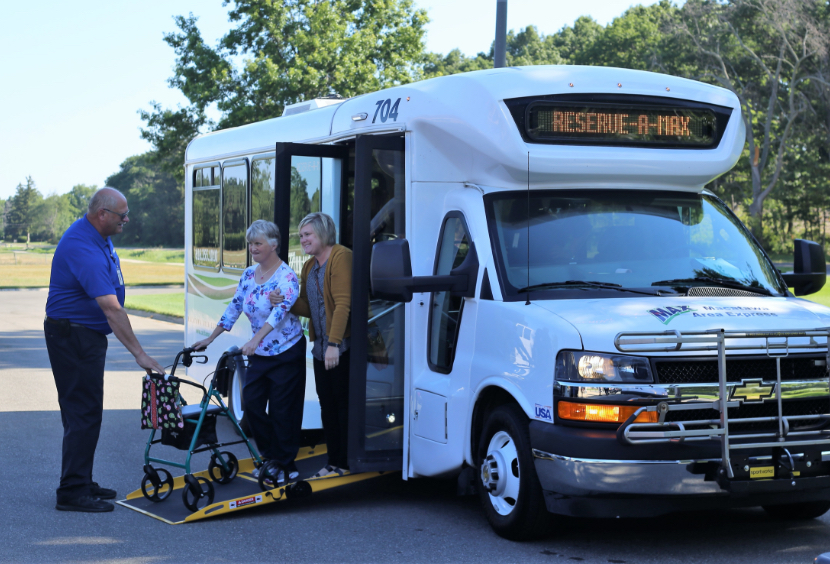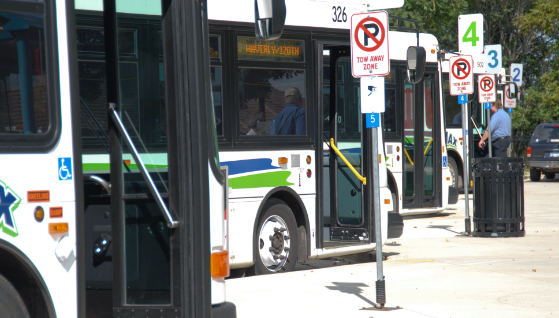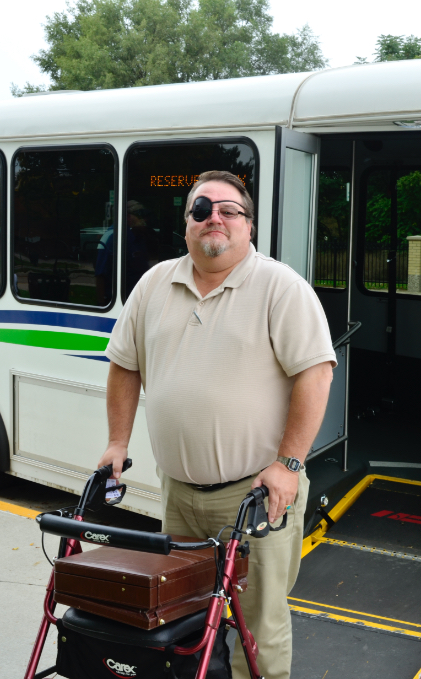
DBE/EEO/
Title VI
Disadvantaged Business Enterprise (DBE) Program
MAX is seeking DBEs and Small Business Enterprises (SBEs) to bid on federally-funded products and services.
The Disadvantaged Business Enterprise (DBE) program has been established in accordance with regulations of the U.S. Department of Transportation (DOT), and seeks to achieve several objectives: (1) To ensure non-discrimination in the award and administration of DOT-assisted contracts; (2) To create a level playing field on which DBEs can compete fairly for DOT-assisted contracts; (3) To ensure that the DBE Program is narrowly tailored in accordance with applicable law; (4) To ensure that only firms that fully meet 49 CFR Part 26 eligibility standards are permitted to participate as DBEs; (5) To help remove barriers to the participation of DBEs in DOT-assisted contracts; (6) To promote the use of DBEs in all types of federally-assisted contracts and procurement activities conducted by recipients; (7) To assist the development of firms that can compete successfully in the marketplace outside the DBE Program; (8) To provide appropriate flexibility to recipients of Federal financial assistance in establishing and providing opportunities for DBEs.
Types of Contract Work Available: Building Repairs, Bulk Fuel, Carpentry, Cleaning Services & Supplies, Concrete/Flatwork, Consulting (Human Resources, Transit Planning), Drug Testing, Electrical/Lighting, Fire Protection, General Contracting, HVAC, Janitorial Services, Landscaping, Laundry Services, Legal Services, Marketing (Graphic Design, Photography, Surveying), Masonry, Office Supplies, Plumbing, Printing, Radio Equipment & Repair, Snow Removal, Towing (Heavy-Duty).
To be added to MAX’s bid list, please click here.
To view MAX’s DBE Policy Statement, please click here.
View the Authority’s Disadvantaged Business Enterprise Program for Fiscal Years 2025-2027:
Interested in Becoming DBE Certified in Michigan?
Firms owned and controlled 51% or more by women, minorities, or other socially and economically disadvantaged individuals or groups are eligible to apply for DBE certification.
For additional DBE-related information, please contact MAX’s DBE Coordinator: Charles Veldhoff, Data Analyst/EEO Officer, Macatawa Area Express (MAX), 171 Lincoln Avenue, Suite 20, Holland, MI 49423, via phone at 616-928-2494, or via email by clicking here.
For detailed instructions, eligibility requirements, and applications for obtaining DBE certification, please contact:
Michigan Department of Transportation (MDOT)
Office of Business Development
PO BOX 30050
Lansing, MI 48909
Telephone: 866-323-1264
Or click here to be directed to MDOT’s DBE Certification page.

Small Business Program (SBP)
If you are currently certified as a Disadvantaged Business Enterprise (DBE) in Michigan, you are automatically included in the SBP and do not need to submit an application.
MAX has incorporated a race- and gender-neutral small business element into its DBE Program, per 49 CFR Part 26.39, to facilitate participation with not only DBEs, but also non-DBE small businesses (SBPs/SBEs). MAX is committed to providing equal and open access for small businesses, and ensuring that all small business designations receive adequate opportunities to participate in contracting and procurement activities.
For information on Michigan Department of Transportation’s Small Business Program (SBP), please click here.
Additional Small Business support is available through the following organizational links:
Types of Purchases
MAX purchases buses and other service vehicles, automotive parts, office and janitorial supplies, and a wide variety of materials and services for the maintenance, repair, and operation of the transit authority. Procurements are made in accordance with the MAX Purchasing Policy & Manual, and applicable Federal, State, and local laws and regulations.
Federal Requirements
MAX receives federal grants from the Federal Transit Administration (FTA) to fund a portion of its operations and some capital expenditures, therefore certain FTA procurement regulations may apply to specific procurements. Vendors bidding on MAX FTA-funded contracts must carefully review and consider the FTA-required contract terms and conditions commonly referred to as the Federal Clauses.
Bid Protests
Any bidder or offeror that has submitted a formal bid, quote, or proposal to MAX and who is adversely affected by an intended decision with respect to the award of the formal bid, quote, or proposal reserves the right to file a bid protest. The written procedure for filing such an action can be found by accessing MAX’s Purchasing & Procurement Policy.
Vendor Responsibility Record
MAX will only contract with responsible contractors. Vendors are encouraged to maintain a responsible performance record by adhering to all contract terms and specifications. If a contractor’s past performance on MAX contracts is unsatisfactory, MAX has the authority to suspend or debar that contractor from bidding on any future MAX solicitations.
Current Solicitations
To view current solicitations, please select RFPs.
It is the policy of the MAX Transportation Authority to comply with all applicable requirements of Title VI of the Civil Rights Act of 1964, Executive Order 11246, Office of Federal Contracts and Compliance (OFCC) Order No. 4 (revised), Americans With Disabilities Act (ADA), Elliot-Larsen Civil Rights Act, and the Michigan Handicappers Act, as amended.
Title VI Compliance
The Macatawa Area Express (MAX) will, on an ongoing basis, ensure that: any programs, services, or benefits are equally distributed without regard to race, color, or national origin; and opportunities to participate in the planning and decision making processes are provided to persons without regard to race, color, or national origin.
For questions or to request a Title VI complaint form by mail, please contact:
Title VI Coordinator
Macatawa Area Express (MAX) Transportation Authority
171 Lincoln Avenue, Suite 20
Holland, MI 49423
By phone at 616.928.2494, or by email click here.
Limited English Proficiency Policy
The Macatawa Area Express Transportation Authority has in place a Limited English Proficiency Policy. The contents of the plan are consistent with the guidance on an effective language implementation plan expressed in Section VII of the U.S. Department of Transportation’s Policy Guidance Concerning Recipients’ Responsibilities to Limited English Proficient (LEP) Persons [Federal Register: December 14, 2005] (Volume 70, Number 239).
Questions or suggestions on improving MAX’s community-wide language accessibility? Please email us by clicking here.


